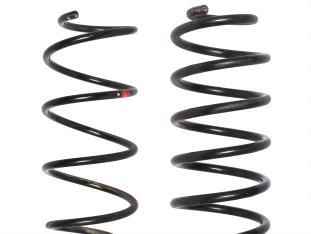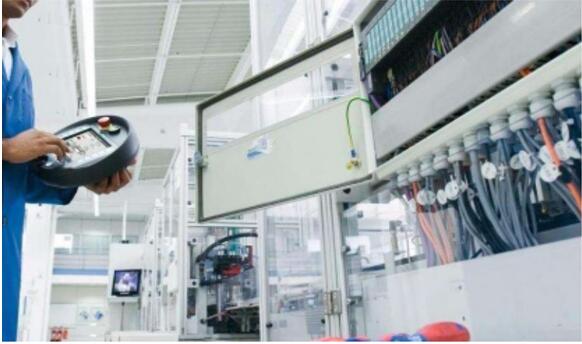As a key mechanical component, the accuracy of the contour shape of the coil spring directly affects the performance and life of the overall equipment. In order to ensure the quality of coiled spring machining, advanced in-line measurement technology has been introduced, focusing on the precise measurement of the curved portion to verify that the contour shape is strictly in accordance with the design requirements.


Measurement of coil spring contour shape
Shape Complexity: Coil springs often have complex curved shapes, including spirals, arcs, etc. These shapes are difficult to accurately capture and quantify when measuring.
Material Characteristics: Coil springs are made of a variety of materials, such as spring steel, stainless steel, etc. The elasticity, hardness, and other characteristics of different materials can affect the accuracy of the measurement results.
Tiny dimensions: The contour dimensions of some coiled springs are very small, placing high demands on the accuracy and resolution of the measuring instruments.
Processing errors: During the processing of coiled springs, a variety of errors may occur, such as shape deviations, dimensional errors, etc. These errors need to be accurately identified and quantified in the measurement.

High-precision in-line image measuring instrument for measuring coil spring profile shape technology
Real-time curve measurement: Adopting high-precision sensors and image processing technology to realize real-time, non-contact measurement of the curve part of the coil spring. This measurement method not only improves the measurement efficiency, but also avoids the damage and errors that may be brought by traditional contact measurement.
Differential dimensional analysis: The system has a built-in standard profile comparison tool, which can automatically compare the actual measured workpiece profile with a preset standard image profile. By calculating the differential dimension between the two, the machining accuracy of the contour shape is accurately assessed and any deviations from the standard are quickly identified.
CAD data compatibility: To further increase measurement flexibility and accuracy, the system supports reading contour shapes directly from CAD data as a datum. This means that users can easily compare the contouring requirements at the design stage with the actual machining results, ensuring that the design requirements are strictly adhered to at every stage of the production process.
Contouring tool application: When contouring requirements are clearly specified in the drawing, the system also provides specialized contouring tools. These tools are able to accurately measure and evaluate the contour of the coil spring according to the drawing requirements, ensuring that the product meets the strict tolerances.
Intelligent Analysis and Reporting: Upon completion of the measurement, the system automatically generates detailed measurement reports that include differential dimensional data, contour assessment results, and possible machining problems and recommendations. These reports not only provide strong support for quality control, but also provide valuable data references for subsequent production improvements.

Product recommendation
TECHNICAL SOLUTION
MORE+You may also be interested in the following information
FREE CONSULTING SERVICE
Let’s help you to find the right solution for your project!


 ASK POMEAS
ASK POMEAS  PRICE INQUIRY
PRICE INQUIRY  REQUEST DEMO/TEST
REQUEST DEMO/TEST  FREE TRIAL UNIT
FREE TRIAL UNIT  ACCURATE SELECTION
ACCURATE SELECTION  ADDRESS
ADDRESS Tel:+ 86-0769-2266 0867
Tel:+ 86-0769-2266 0867 Fax:+ 86-0769-2266 0867
Fax:+ 86-0769-2266 0867 E-mail:marketing@pomeas.com
E-mail:marketing@pomeas.com
